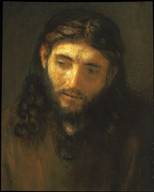
I've been transfixed by the live TV coverage from Chile of the miners' rescue today. It's been playing in the background on my PC. Who could not be moved by the emotions of those rescued and reunited with their families. As the men have been released from the rescue pod it's almost as if they are being reborn; in fact one said 'I have come back to life'.
It's been notable how many people have been talking about God today. The first words of the President of Chile were "We thank God..." At least one of the miners dropped to his knees in prayer as he was released into the sunlight.
The story of rescue and reunion is such a powerful one, and one that the Christian Gospel is founded on. Going back to the days of Israel's rescue from their slavery in Egypt to the message of release through faith in Christ from sin, guilt and the fear of death. The TV commentators were talking about the psychological impact of the ordeal and rescue on the men and their families, and wondering what would happen in the days to come - would they simply return to their old way of living, or would this experience really change their lives. Who can tell?
The Christian church through the ages has treasured the wonderful message of salvation and rescue. As people encounter God through faith in Jesus Christ their story has so often been of transformed lives set free to enjoy life in all its fullness.
I particularly enjoyed hearing the chaplain to the President of Chile. I didn't catch his name, but he is an Anglican minister - English, but fluent in Spanish. 24 Hour News means you can speak at great length as there is no time limit for a report, and this chaplain was really on fire with enthusiasm for what God is doing in Chile. Commenting on the miners' ordeal he said, "There were not 33 in the mine but 34, because the Lord Jesus was there with them." You don't often get that explicit on the BBC news.

